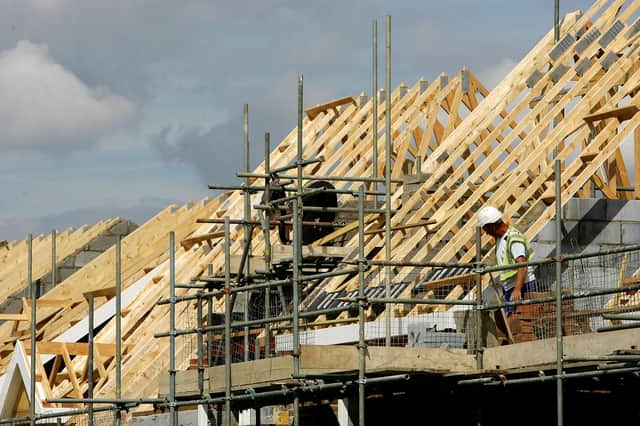Edinburgh Council's City Plan 2030 is so bad there's no time to change it. Let's hope Scottish Government sets it straight – John McLellan


City Plan 2030 has been out for consultation for months and the responses were contained in an unwieldy 1500-page document considered by planning committee councillors yesterday. At time of writing, the decision hadn’t been finalised, but as the only two amendments were minor procedural matters, the proposals will now go virtually unchanged to the Scottish Government for further examination by a planning reporter.
What the reporter will see is page after page of objections by a wide range of interested parties and experts, and after virtually every point, the planning officers’ response is the same: “no modification required” or “no modification proposed”, as if every detail in such a huge plan is unchallengeable because, it would seem, the omnipotent council planners know best.
Advertisement
Hide AdAdvertisement
Hide AdYet analysis indicates the plan falls woefully short of meeting Edinburgh’s housing needs, around 30 per cent shy of estimated demand, some 25,000 houses, which is a lot of house-hunters. But none of this is new because the council’s housing projections have regularly underestimated the extent of the shortage of all types and overestimated its ability to meet need. Officers have regularly defended fantasy affordable-housing reports which smacked of political interference.
As reported in this column before, there is widespread disquiet that Edinburgh’s plan to reallocate land currently occupied by businesses to housing threatens 3,500 jobs and Edinburgh’s economic diversity, pushing companies to relocate beyond the bypass.
Swathes of land where houses are supposed to go are owned by landlords with no intention of selling, even if the council had the money to buy them out. Some 400 sites are currently occupied by businesses with no intention of leaving, while the council has no idea where they will go. There are no easy solutions, but there is no shortage of comments which dismiss much of the City Plan as undeliverable and impractical as often as the officers dismiss them as unsupported.
Edinburgh is not alone, with housebuilders’ trade association Homes for Scotland accusing the Scottish Government of an inadequate response to Scotland’s housing shortage. It’s easy to accuse housebuilders of having a vested interest in inflating expected demand to push through more permissions, but limiting supply just pushes up prices and they neither win nor lose from reliable market forecasts.
Advertisement
Hide AdAdvertisement
Hide AdPerhaps Edinburgh planners are relying on an economic crash to depress demand, but the numbers are so far out that pent-up demand is likely to keep up the pressure even if prices cool. There is an alternative interpretation, however; far from believing everyone is out of step except them, they know their plan is a basket case but the system is so complex that admitting as much would mean going back to the drawing board and leave Scotland’s capital city without a set of rules for development for possibly another two years. It would create a free-for-all where plans are approved on appeal.
Maybe they’ve decided it’s easier to let the Scottish Government reporter dismantle their report, adopt whatever comes back, blame someone else for the mess and avoid admitting they made hash of the whole thing.
Comment Guidelines
National World encourages reader discussion on our stories. User feedback, insights and back-and-forth exchanges add a rich layer of context to reporting. Please review our Community Guidelines before commenting.
